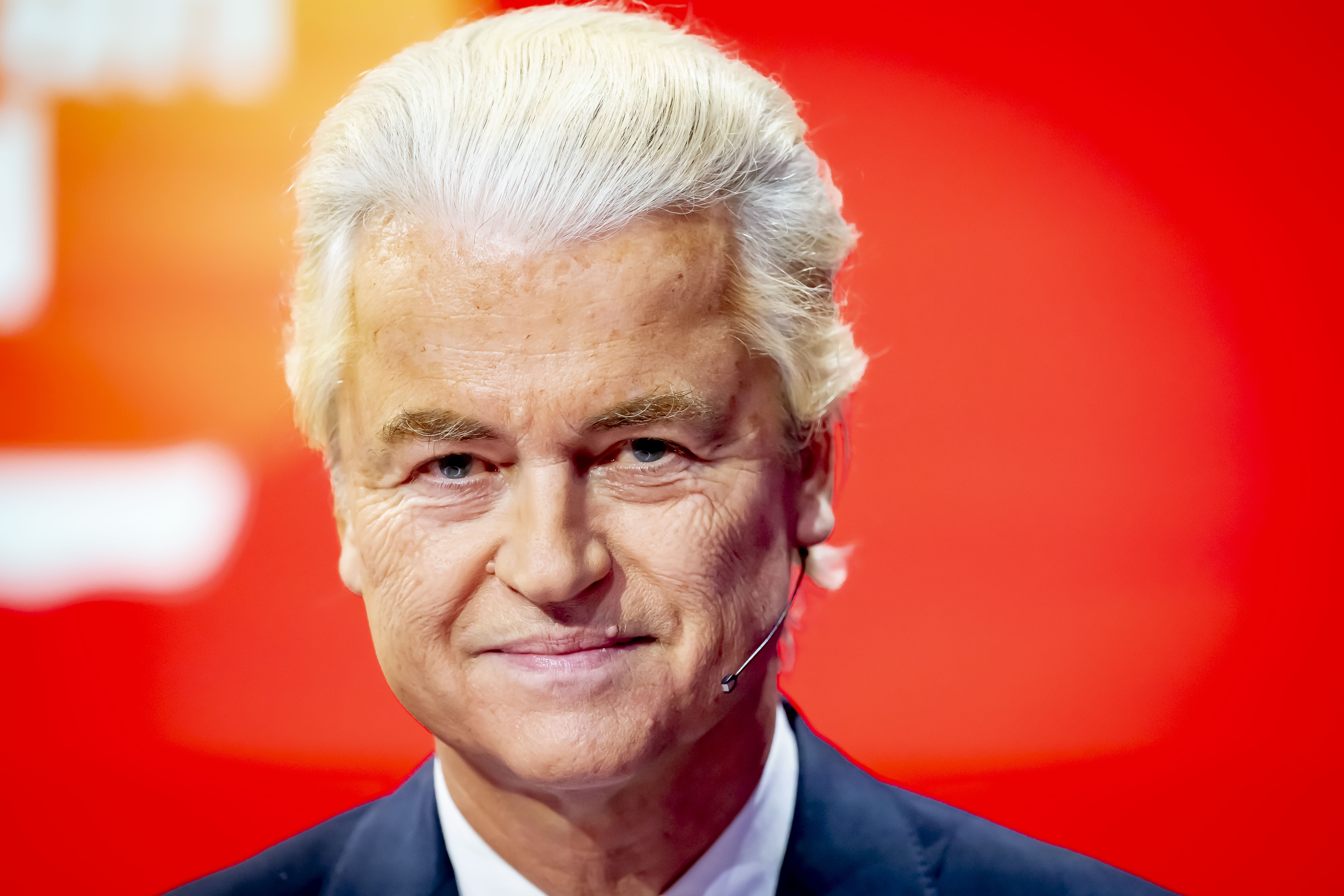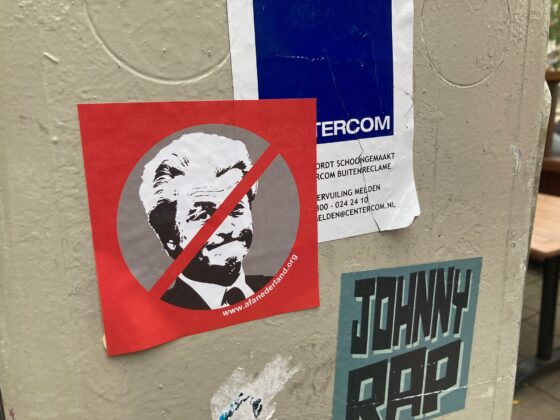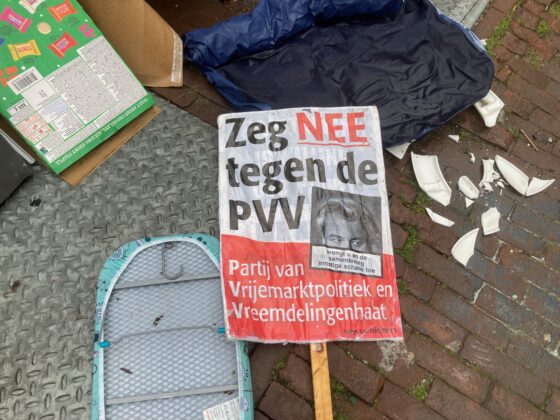Why Geert Wilders won’t be the next Dutch prime minister
Gordon Darroch
With less than week to go until the Dutch general election, the international spotlight is again falling on Geert Wilders, leader of the far-right PVV, and the question of whether he will lead the next government.
Opinion polls suggest Wilders’ party is on course to repeat its performance two years ago, winning more than 30 seats – slightly fewer than the 37 they currently hold, but making the PVV the largest party by a clear margin, albeit with just 20% of the vote.
With populist parties mounting serious challenges in Britain, France and Germany, and after the success of the right-wing ANO in the Czech election, the Netherlands is seen as a litmus test of whether the anti-immigration, Eurosceptic, Trump-curious right can expand its power base further.
Wilders has raised the stakes by insisting that if the PVV becomes the largest party on October 29, he should be installed as prime minister. That view has been echoed by the leader of another populist right-wing party, Joost Eerdmans of JA21, and a former MP for the Labour party (PvdA), Peter Rehwinkel.
But in reality, his chances of crowning his 27-year parliamentary career by moving in to the prime minister’s office are practically zero. And that has everything to do with the Dutch political set-up.
The Netherlands’ proportional voting system, where the number of seats a party wins in the 150 seat lower house of parliament exactly matches each party’s share of the vote. Winning 0.67% of the total vote is enough to get into parliament and that makes it impossible for a single party to win a majority.
Coalition governments of two or three parties are the norm and the last three cabinets have been four-way combinations – including the most recent administration, which included the PVV as an equal partner for the first time.
Majority vote
Crucially, the cabinet needs to be approved by a majority vote in parliament before it can take office, and Wilders faces an uphill struggle to make up the numbers because most of the other main parties have ruled out sharing power with him.
“They can try to form a cabinet that doesn’t have majority support, but it could be voted out immediately,” said Bert van den Braak, emeritus professor of political history at the University of Maastricht. “In the case of a cabinet led by Wilders I think that’s very likely to happen.”
Wilders pulled the plug on the last cabinet in June after 11 months, complaining that his partners were blocking his plans to impose the most stringent asylum regime in Europe.
One of those partners, the right-wing liberal VVD, blamed Wilders for the failure to make progress on immigration and vowed it would not go into government with him again. “Geert Wilders has shown that every vote for him is wasted,” party leader Dilan Yesilgöz said.
Another coalition party, New Social Contract, was so battered by the endless in-fighting that it is expected to lose all 20 of its seats, while the fourth member, the farmers’ party BBB, iis likely to be reduced to a couple at most.
Main parties say no
Three of the other top six parties in the polls, the Christian Democrats (CDA), the progressive-liberal D66 and the left-wing alliance GroenLinks-PvdA have also rejected going into a cabinet with Wilders.
On current polling they could just about form a majority with the VVD, but the latter party is reluctant to team up with GroenLinks-PvdA, which it regards as too radical.
The only other party likely to win more than 10 seats, JA21, is willing to join a PVV cabinet, but even with two or three minor parties on board that would leave Wilders more than 20 seats short of the 76 needed for a majority.
Around eight or nine parties are likely to share between 20 and 30 seats, but they include some left-wing and progressive factions that are vehemently opposed to the PVV.

Undemocratic
Wilders has argued it would be undemocratic for the other parties to shut the PVV out of the cabinet formation if it has the most seats. But the election winner has no automatic right to form a government under the Dutch system, Van den Braak said.
“A vote for a small party has exactly the same as a vote for a large one,” he said. ”The only thing that matters is whether you can get a majority to support the cabinet, even if the largest party isn’t in it.”
Wilders could also try to take charge of a minority cabinet by agreeing to work on a plan by plan basis with a clutch of smaller parties, if he could get around 50 seats for his coalition.
That would probably require the VVD to change course – as they did when they joined the last cabinet – but even then one of the other main parties would have to drop their objection.
Minority cabinet
“The only example of that was Mark Rutte’s first cabinet in 2010, when the PVV were the supporting party and not in cabinet, but they had to agree a fairly comprehensive deal,” Van den Braak pointed out.
“So there’d still have to be negotiations, and I can’t see GroenLinks-PvdA or D66 rushing to do a deal with PVV, VVD and JA21 to enable a Wilders cabinet.”

The other option for Wilders would be to give up his ambitions of being prime minister and let the leader of another party or a technocrat, such as the current prime minister Dick Schoof, head the cabinet.
But Wilders has insisted he will not step aside this time and there is no appetite in The Hague for a repeat of the experiment with Schoof, whose authority was undermined by the constant clashes between the coalition party leaders. “We can pretty much rule out the Schoof option,” Van den Braak said.
All the potential coalitions have their complications: the VVD wants a centre-right coalition with JA21 rather than GroenLinks-PvdA, but that would leave the cabinet around seven seats short of a majority. The ultra-conservative JA21 and cosmopolitan D66 also have expressed strong reservations about each other.
Van den Braak said history has shown that once the heat of the election campaign has died down and the results are in, parties are more prepared to work together to form a government.
“If the parties keep excluding each other it’s going to get very difficult, but everything becomes fluid under pressure,” he said.
“In the end someone will have to give way, because the need to come up with a result is huge. New elections will solve nothing, so we can pretty much rule that out.”
Thank you for donating to DutchNews.nl.
We could not provide the Dutch News service, and keep it free of charge, without the generous support of our readers. Your donations allow us to report on issues you tell us matter, and provide you with a summary of the most important Dutch news each day.
Make a donation